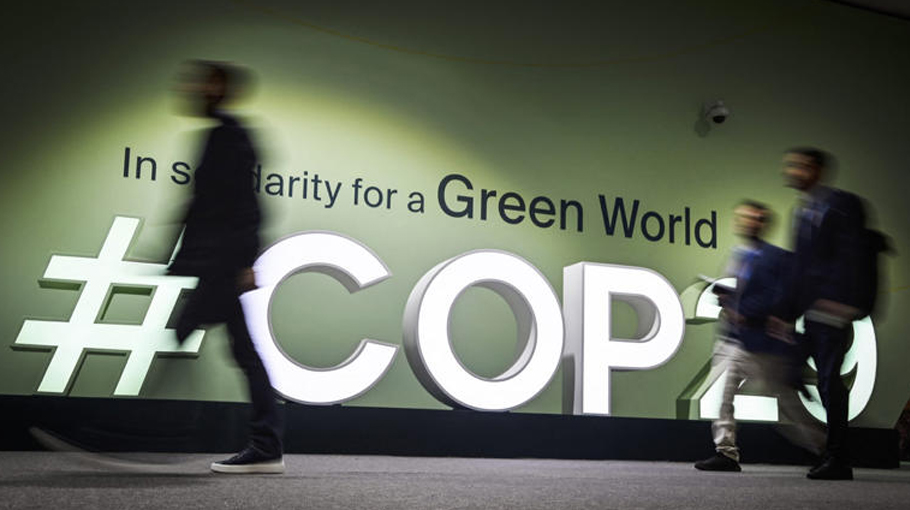COP29 Breakthrough: Carbon credit trade rules approved, ending long deadlock

UN experts called on States to prioritise the protection of human rights with truly ambitious climate action to 2030 and agree for sufficient transparent and legitimate funding in the 29th meeting of the Conference of the Parties to the UN Framework Convention on Climate Change (COP29) begins in Baku, Azerbaijan. The UN has announced the provisional number of 66,778 participants in this year’s conference. Leaders from around the world are meeting to address the climate crisis and countries are readying for tough talks on finance and trade, following a year of weather disasters that have emboldened developing countries in their demands for more funds. The draft decision on article 6 goes through with no objection to a round of applause on the first day of COP29. The Cop29 presidency is hoping to score an early win by ending a years-long blockage over rules to govern carbon markets.
Civil society groups fear the final rules to bring the market to life may be gavelled through in Baku without a proper debate. They are also keen to stress that the money from carbon markets should not replace the vast sums of climate finance that poor countries say they are owed by richer ones. The gavelling through of carbon markets on the first day of Cop29 is unacceptable and undermines the credibility of the whole process. Further, it is opening the floodgates for a global carbon market that will have devastating impacts on communities in the global south, on Indigenous peoples, and on small peasant farmers first and foremost.
The oil and gas industry made $4tn in pre-tax profits in 2022, notes Global Witness. That is 10 times the annual cost of climate damages in developing countries, estimated at about $400bn a year. The UN’s Loss and Damage Fund, aimed at helping poorer nations hit by climate disasters, contains less than 0.2% of this $400bn figure.
US climate envoy John Podesta has called on governments to believe in the United States’ clean energy economy, saying President-elect Donald Trump can slow but not stop its climate change pledges. He added that outgoing President Joe Biden’s landmark climate legislation, the Inflation Reduction Act (IRA), which provides billions of dollars in subsidies for clean energy, would continue to drive investments in solar, wind, and other technologies.
The UN’s high commissioner for refugees Filippo Grandi said, “The
climate emergency represents a deep injustice.
People forced to flee, and the communities hosting them, are the
least responsible for carbon
emissions yet are paying the highest price.
The UNHCR, the UN’s refugee body, has released a report today on how climate breakdown is making life even more difficult for people fleeing war and persecution. It finds that three-quarters of the 120 million displaced people around the world are in countries severely affected by climate breakdown, and that by 2040 65 countries around the world are expected to face “extreme climate-related hazards”.
The UN’s high commissioner for refugees Filippo Grandi said, “The climate emergency represents a deep injustice. People forced to flee, and the communities hosting them, are the least responsible for carbon emissions yet are paying the highest price. The billions of dollars in climate financing never reach them, and humanitarian assistance cannot adequately cover the ever-widening gap. Solutions are at hand, but we need urgent action. Without proper resources and support, those affected will be trapped.”
Prime Minister of the United Kingdom Keir Starmer announces today a stringent new climate goal for the UK. The UK will pledge to cut emissions by 81% compared with 1990 levels by 2035, a target in line with the recommendations of the Climate Change Committee, according to three people familiar with the matter. The goal will be one of the first national plans on cutting carbon, known as “nationally determined contributions” or NDCs in UN jargon, to be unveiled at Cop29.The goal would be achieved by decarbonising the power sector and through a massive expansion of offshore wind, as well as through investments in carbon capture and storage and nuclear energy.
At COP29, Bangladesh will focus on securing funding to support a national plan that could benefit over 50 million people in high-risk climate zones.
Bangladesh ranked as the seventh most climate-vulnerable country globally and faces regular natural disasters, including cyclones, floods, and heat waves, and estimates that by 2050, climate change could displace 13.3 million Bangladeshis. Bangladesh already spends $3 to $3.5 billion annually on climate resilience. Chief Adviser Prof. Muhammad Yunus urged Bangladeshi officials and leaders from NGOs and civil society to intensify efforts to spotlight the nation's climate crisis concerns at COP29 in Baku, Azerbaijan. At a coordination meeting following his arrival, Prof. Yunus stressed the need to ensure Bangladesh's climate priorities are included in the COP29 final declaration. He will represent the country today at the main summit and is scheduled to speak at three major events.
Although the COP29 conference started with much hope, so far, the absence of many major world leaders has left a lot of confusion regarding the climate conference's decision. The future of the 29th climate conference lies in what the world leaders decide from the place where the Trump administration withdraws from the Paris Agreement as an election promise and the current position of demanding $1 trillion instead of $100 billion.
Professor Dr. Ahmad Kamruzzaman Majumder, Dean, Faculty of Science, Professor, Department of Environmental Science, Stamford University Bangladesh, Joint Secretary, Bangladesh Poribesh Andolon (BAPA) & Chairman,
Center for Atmospheric Pollution Studies (CAPS).




